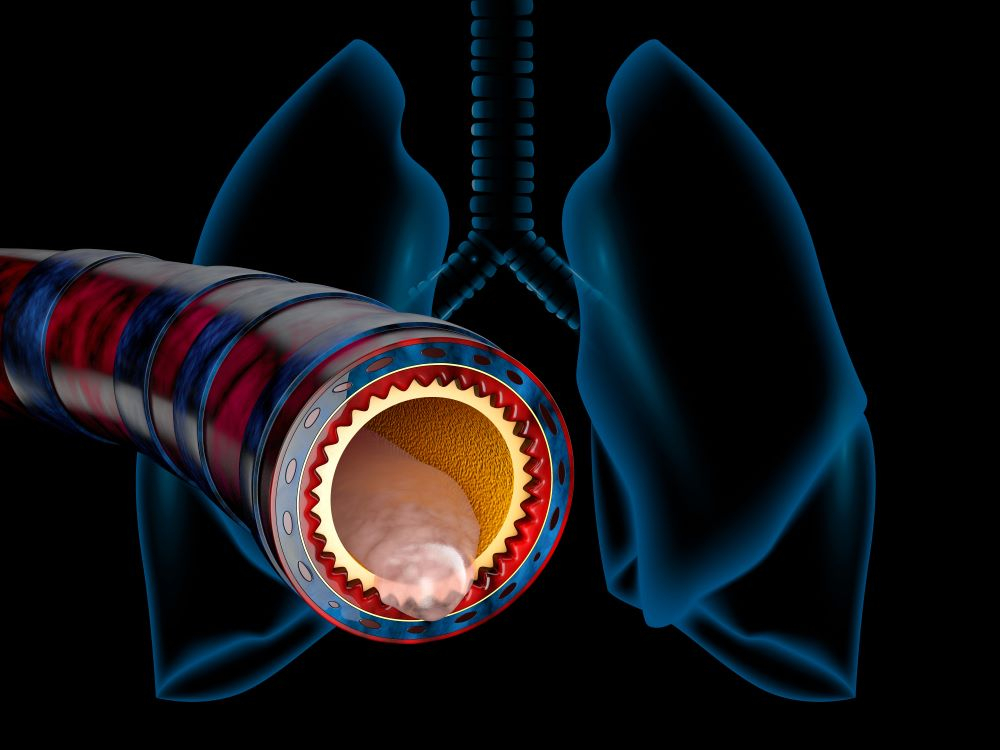Phlegmy bronchial tubes cause annoying coughing fits. With our tips you will quickly get rid of the mucus in the bronchi.
What is behind mucusy bronchi?
Mucilaginous bronchial tubes can indicate various diseases. Typically, they occur, for example, in colds or bronchitis, but they are also frequently found in lung diseases or asthma. The mucous membranes become inflamed, and as the disease progresses the bronchial mucosa produces increased secretion. This hinders breathing and also provides a good breeding ground for viruses and bacteria. Coughing is intended to transport the mucus out of the body.
Why do we cough?
Actually, coughing is a protective reflex of the body to cleanse the airways. For example, coughing with sputum transports mucus from the bronchi. Although this is usually unpleasant for us, it is the only way to get rid of the stuck secretion in the bronchi. The rule is: the tougher the mucus is, the more difficult it is to cough it up. Chronic coughs are often caused by environmental stimuli such as tobacco smoke or dust.
Treatment of bronchial mucus
There are several ways that can make coughing up easier and free us from mucus in the bronchi. The following tips and home remedies can help with the disease:
- Drink a lot: Liquids also liquefy the mucus in the bronchi. We should therefore drink at least two liters of water a day. But also special teas that support coughing up are suitable. Often used medicinal plants in this case are for example thyme, ribwort plantain and marshmallow.
- Mucilage dissolvers: With the help of plant mucilage dissolvers, which also rely on the plant power of ribwort plantain etc., the mucus in the bronchi is liquefied. Important: Mucolytics and cough suppressants must not be used in parallel!
- Inhalation: Usually the airways are very dry when a cold occurs, which in itself increases the irritation of the cough, but does not help to relieve mucus in the bronchi. Inhalation moistens the airways and loosens the stuck mucus. To do this, you can simply pour hot water into a bowl and add eucalyptus oil, for example. Then place a towel over your head and breathe the steam in and out deeply over the bowl. Alternatively, you can buy proper inhalation devices at the pharmacy.
- Tapping and massages: Gentle tapping and back massages can also help to release secretions from the bronchi. Tapping is done from bottom to top when breathing out. But: It is better to leave the implementation to trained specialists.
- Room humidifier: Dry room air also irritates the bronchial tubes and, in the worst case, increases mucus formation. With the help of humidifiers in every room, the airways also remain rather moist.
How to cough properly
Coughing creates high pressure in the chest and lungs. The right cough etiquette helps to avoid putting additional strain on the lungs:
- Stay relaxed: We tend to tense up when coughing, but this is rather counterproductive. So try to stay relaxed. When coughing, bend your upper body only slightly forward and support your arms on your thighs.
- Late coughing: Do not try to transport deep-seated mucus upwards by crampy coughing. You are only putting a strain on the body. Instead, try to cough only when the secretion can already be felt further up in the chest or throat.
- Use your fist: It is best to cough against the closed lips or against the fist. This causes the cheeks to swell, creating a counter-pressure that widens the airways and makes coughing even easier.
- Cough briefly: If possible, you should try to cough only briefly and forcefully. Otherwise you risk a dry coughing attack.
- Use lip brake: To make breathing easier, the so-called lip brake is worthwhile. To do this, breathe in deeply through your nose, press your lips slightly together and let the air escape through a narrow gap in your mouth.
Cold or bronchitis – which disease do I have?
While a cold is often rather mild, bronchitis manifests itself through strong symptoms, but above all, of course, through very strong coughing, which can also cause chest pain or even shortness of breath. Bronchitis should not be underestimated – it could also develop into chronic bronchitis or even pneumonia. If the symptoms do not subside, get worse or if there are more, you should definitely consult your doctor. Under certain circumstances, drugs may have to be used for treatment.

